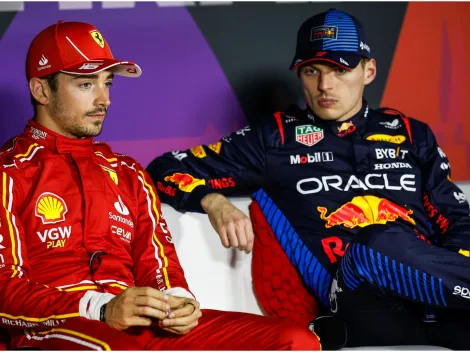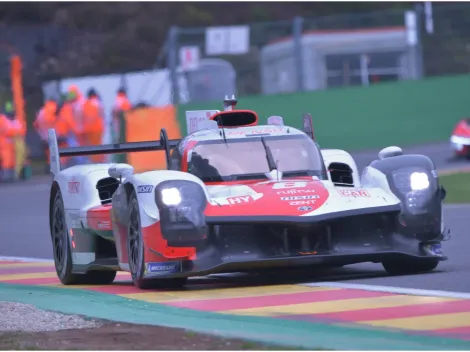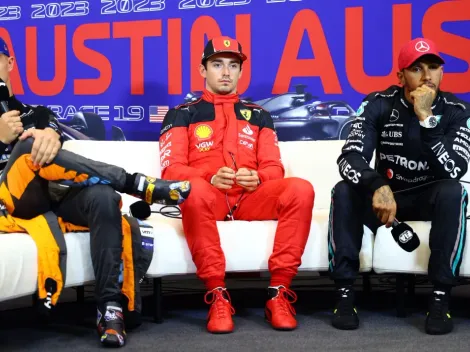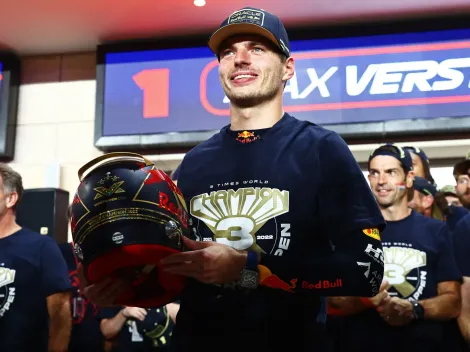Formula 1 is the category par excellence of motorsports worldwide. For more than 70 years it has delighted fans of speed with its characteristic Grand Prix, its immortal champions and has become a paradigm of efficiency, engineering and permanent innovation, almost like an indelible stamp of its essence. Here you will know the 20 most impressive records of Formula 1.
“The Great Circus” had its first season in 1950 with 7 Grand Prix (today it is more than three times that amount) with the Italian Giuseppe Farina as the great champion. After more than 70 years, the races, regulations, budgets, drivers and many other things have changed from what was that first season.
Beyond this, there are some impressive records set by Formula 1, many of which are unlikely to be matched, let alone broken. The vast majority of them have to do with positive aspects (for example, the biggest winners) and others with negative aspects (for example, the fastest disqualification in history). Without further ado, these are the 20 most impressive records in Formula 1.
1. Youngest Driver in a Gran Prix
There are drivers who spend years and years trying to reach the highest category of motorsport without succeeding, even being very close. That is why it is surprising to see that a pilot is able to arrive while still a teenager. This is the case of Max Verstappen, who ran his first Grand Prix (Australia in 2015) at the age of 17 years and 166 days.

Max Verstappen before the Abu Dhabi Grand Prix (Mark Thompson/Getty Images)
2. Youngest driver to win a race
Getting to Formula 1 is really very difficult even for drivers with great skills. Being one of the drivers in the premier category of motorsports worldwide undoubtedly requires years of dedication. But something even more difficult is to reach the highest category and win at least one Grand Prix. This is the case of Max Verstappen, who at the age of 18 years and 288 days won the Spanish Grand Prix on May 15, 2016.
3. Youngest champion
Reaching Formula 1 at a very young age and also winning a race is undoubtedly difficult. However, there are riders who, from an early age, show that they have the conditions to be champions and, without a doubt, it did not take long for them to be proclaimed the best of the season. At the age of 23 years and 134 days, Sebastian Vettel was proclaimed champion surpassing the 23 years and 300 days of Lewis Hamilton.

Sebastian Vettel, youngest F1 champion (Matthew Lewis/Getty Images)
4. Oldest runner to win a race
Remaining active in Formula 1 after a certain age is a difficult task due to the great physical demand that drivers must meet to be able to drive their cars. Just to cite an example, due to high speeds, a helmet could weigh between 5 and 6 times more. For that reason, it is almost certain that this record will never be broken. At the age of 53 years and 22 days, Luigi Faggioli won the 1951 French Grand Prix, becoming the oldest driver to win a race.
5. Oldest champion
The level of physical demand that Formula 1 has is very high. It is for this reason that it is rare to see drivers competing after the age of 37. Most of the drivers are between 22 and 35 years old and the demanding nature of the category prevents other more veteran drivers from being able to continue being part of “The Great Circus”. However, the oldest champion in the category was over 40 years old: none other than Juan Manuel Fangio, who in 1957 won the championship at the age of 46.

Juan Manuel Fangio, the oldest F1 champion (El Grafico/Getty Images)
6. Most titles won
This record is shared by two drivers (one of whom is active and could easily exceed that mark): the first is the legend Michael Schumacher, and the second is the British multi-champion Lewis Hamilton, both with 7 titles. After them in second place is Juan Manuel Fangio with 5, and in third Alain Prost and Sebastian Vettel with 4.
7. Most consecutive titles
This is a record that was threatened several times: first by Sebastian Vettel, who won 4 consecutively between 2010 and 2013; and then by Lewis Hamilton, also winner of 4 consecutive titles between 2017 and 2019. However, the record could not be equaled and continues to belong exclusively to “Kaiser” Schumacher: no less than 5 consecutive titles between 2000 and 2004.

Michael Schumacher of Ferrari (Robert Cianflone/Getty Images)
8. Championship winner without achieving any pole
Winning a race without taking pole position in qualifying is possible and has happened plenty of times. However, it is no less true that being in first place gives you a valuable advantage, and if you can defend your position well, it will be easier to win the race. Even so, there have been drivers in history who, without having had this advantage throughout the season, were able to become champions. This is the case of Niki Lauda and Denny Hulme, Formula 1 champions without taking any pole position, the first of them in the 1984 season; and the second, in 1967.
9.Narrowest pole position winning margin
It is truly rare to find two drivers simultaneously setting the fastest time in qualifying. But there is something more complicated: three drivers who get the same time, which was also the best. This happened at the 1997 Spanish Grand Prix. There was a three-way tie for pole position between Jacques Villeneuve, Michael Schumacher and Heinz-Harald Frentzen (all with a time of 1’21.072). Finally, the pole went to the Canadian since he was the first to set the time.
10. The smallest difference to win a race
Throughout history there have been exciting finishes in the Formula 1 Grand Prix. But without a doubt none as surprising as the Italian Grand Prix in 1971, won by Peter Gethin. Just one hundredth decided victory at the Monza circuit, characterized by its long straight, which allowed this intense finish. And not only that: the top five finishers were separated by six tenths of a second.

Peter Gethin, race winner of the 1971 Italian GP (GPLibrary/Getty Images)
11. The biggest difference to win a race
At present, this record really does seem unworthy of a Formula 1 race. However, it is to date the biggest difference between first and second in Grand Prix history. Stirling Moss obtained a difference of five minutes and twelve seconds over Mike Hawthorn in the 1958 Portuguese Grand Prix. A difference more typical of a Marathon.
12. Fewer cars finished a race
It is common and happens in almost all races that drivers drop out for various reasons: failures in the car, a crash, going off the track, etc. What is unusual is what happened at the 1996 Monaco Grand Prix, where almost all the drivers dropped out. In fact, only 3 managed to finish. Yes, as unusual as it may seem, only cars driven by Olivier Panis (winner), David Coulthard and Johnny Herbert saw the checkered flag, for a total of 19 retirements.

David Coulthard one of the few who managed to finish the 1996 Monaco GP (Darren Heath/Getty Images)
13. Most podiums in a season
Although it is possible to win a Formula 1 championship without making podiums in all the Grand Prix, there was a driver who was proclaimed champion with 100% podium finishes throughout the season, which showed his enormous dominance on the tracks of “The Great Circus”. The record belongs, it could not be otherwise, to Michael Schumacher, who in the 2022 season had 17 podium finishes in the 17 Grand Prix with 11 race wins, 5 second places and only one third place.
14. Greater number of starters
Due to current regulations, this record will surely remain unchanged for the rest of eternity. It comes from a very early time in Formula 1 where many things were yet to be learned and therefore the regulations could become much laxer. That is why in the 1953 German Grand Prix a total of 34 drivers started the race.

Juan Manuel Fangio in the pits during the 1953 German Grand Prix (Bernard Cahier/Getty Images)
15. Best podium rate in a race
Dorino Serafini 100% (1 out of 1). Serafini finished his only race on the podium at the 1950 Italian Grand Prix. He only drove half the race: he handed his car to Alberto Ascari midway through as the rules permitted at the time.

Dorino Serafini at Silverstone (GP Library/Getty Images)
16. Earliest start to a season
Although there is never an exact date, and that can change from season to season, it is known that the Formula 1 season starts in March, usually at the end of the month. However, there were 3 years where the season started along with the year. This happened between the years 1965 and 1968, the race being contested in those seasons on January 1. It was surely a good way to start those years for motorsport fans.
17. Longest race
The 2011 Canadian Grand Prix is by far the longest in history. It lasted four hours, four minutes and 39.537 seconds. At the start of the race, the track was wet. On lap 19, rain forced the race to be red-flagged for two hours. In accordance with F1 regulations, the clock kept ticking down, so when the race finally resumed and the 70 laps were run scheduled, everything had taken more than four hours.
18. Win with most pit stops
The 2011 Canadian Grand Prix not only broke the record for the longest time, but also this record for victory with the most pit stops. Despite its long duration, the race was undoubtedly epic with Jenson Button winning despite being last with 30 laps to go. The British driver had his day of glory by finishing first in that historic Grand Prix having passed through the pits a total of 6 times.

Jenson Button, winner of the impressive 2011 Canadian Grand Prix(Darren Heath/Getty Images)
19. The fastest sanction in history
A record that will really be difficult to ever beat. And in truth, no one would want to have such a dubious honor. During free practice at the 2006 Turkish Grand Prix, it took Sebastian Vettel just six seconds to be penalized. As soon as he left the pits, the German exceeded the speed limit allowed in the lane. It is the fastest penalty in history, just six seconds after debuting.
20. Most consecutive dropouts
Italian driver Andrea De Cesaris was nicknamed “The Prince of Destruction”, and this name is well deserved: between the 1985 and 1986 seasons he spent 18 consecutive races retiring. And the thing does not end there. Because there are those who raise that figure not to 18, but to 22 races. What is the difference in criteria? It so happens that the Italian abandoned some races when they were almost over, with which he officially completed enough laps to count as “classified”. What is certain is that he went 22 races without seeing the checkered flag.

Andrea De Cesaris “The Prince of Destruction” during practice for the 1986 Brazilian Grand Prix (Michael King/Getty Images)





